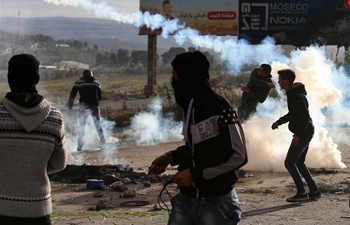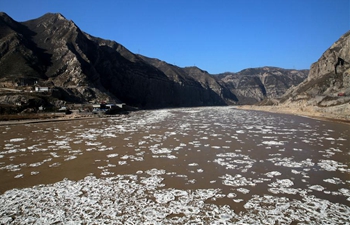UNITED NATIONS, Dec. 7 (Xinhua) -- The Yemeni capital of Sana'a was in a "tense calm" following six days of bombing in which more than 200 people were killed and around 480 people wounded, a senior UN humanitarian coordinator in Yemen said on Thursday.
"There's a tense calm in Sana'a over the last day or so," said Jamie McGoldrick, UN humanitarian coordinator and UN Development Program (UNDP) resident representative in Yemen.
"There were no air strikes, no military activity which gave an opportunity to civilians to venture out and try to seek help or supplies," McGoldrick told reporters here at UN Headquarters during a teleconference briefing from Sana'a.
"For some civilians they are reluctant to leave their homes despite the need for restocking food and medicines, etc. Other residents were forced to go to treatment in various hospitals around the city," he said.
"We heard from our colleagues that some 230 people have been killed, including civilians and over 480 have been injured in the most intensification of conflict in the last six days in Sana'a," McGoldrick said.
"Fuel was desperately needed to help distribute what little food there is and to keep hospital generators working and water and waste management systems operating," the official said.
Supplies, such as fuel, have been kept from entering Yemen because of a blockade of Yemeni ports by Saudi Arabia, imposed after what Riyadh said was an intercontinental ballistic missile fired into its territory by Houthi rebels in Yemen.
Saudia Arabia currently is leading a coalition against the Houthis.
McGoldrick said relief agencies have been able to move in small numbers around the city to assess the situation, bring urgently needed fuel and kits to hospitals and health facilities, send ambulances and medical teams to reach injured.
McGoldrick said that over 22 million people require assistance and over 8 million people are in need of food support, who are on the brink of famine.
"Diphtheria has broken out in the central part of the country, killing many children and this is the result of the collapsing of the health systems," he said.
Yemen's humanitarian response needs millions of liters of fuel to keep hospital generators running, to transport food and to pump water to ensure that the systems are operating, he said.
McGoldrick called for ending the blockade on commercial and humanitarian goods to avert the deaths and "a serious and total collapse and catastrophe."

















